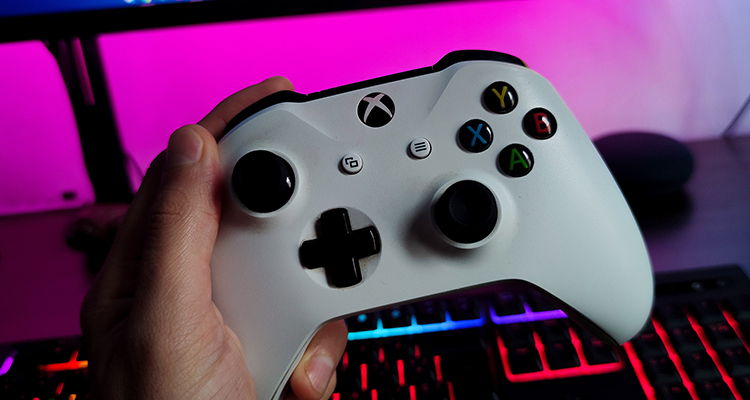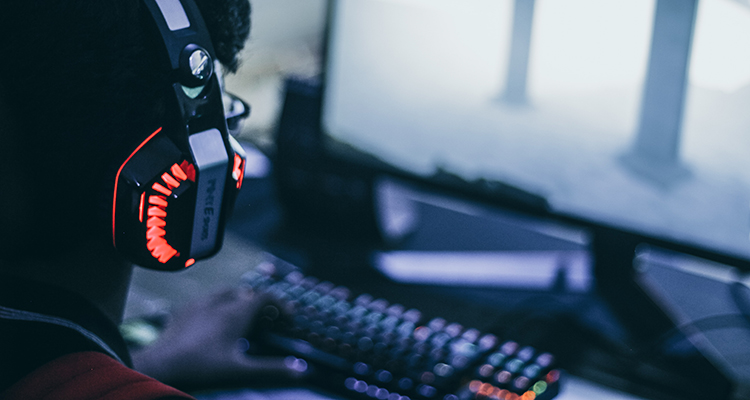Complete Guide To Video Game Addiction
Content
The Basics
What is Video Game Addiction?

There’s no definitive answer to this question. Video game addiction, like any other addiction, looks different for everyone. Some people are skeptical that it even exists, but for those who are controlled by their video game addiction (or know someone who is), it’s a very real, crippling problem.
By definition, video game addiction (also referred to as an internet gaming disorder) is a compulsive need to play video games. This obsession makes it impossible for the addict to function normally and perform various everyday tasks. Many aspects of their lives are compromised including their ability to work, socialize, and form healthy relationships.
So where is the line that separates a video game hobby from a video game addiction? This is also unclear. Some people view video games as a fun, innocent hobby and a healthy way to release stress. Others see them as an unhealthy distraction with potentially harmful side effects.
The appeal of video games is far-reaching. Many argue that they’re a great way to destress and escape from everyday responsibilities. They also appeal to our natural reward systems and offer measurable growth and a sense of accomplishment. While these are all valid points, when the cons of playing video games start to outweigh the benefits, you may have an unhealthy addiction on your hands. Compromised health, negative performance at work or in school, and damaged personal relationships are just a few ways that video games negatively impact your everyday life.
How does this slippery slope into video game addiction happen? Beyond the social and psychological factors that make video games so appealing is the physical addiction. When you play a video game, your brain releases a chemical known as dopamine into your brain’s pleasure centers. Dopamine creates feelings of happiness and relaxation. This is why many gamers consider gaming their go-to stress relief. Unfortunately, over time, your brain needs more and more dopamine to achieve the same level of pleasure. How do you achieve this? By playing more video games, of course. Another thing people don’t realize about dopamine is that it helps you sustain focus, interest, and attention. The more interested you are in something, the more dopamine is released. If you’ve ever seen someone completely zoned-out or fixated on a video game (or have experienced it yourself), that’s the powerful effects of dopamine hard at work.
Is Video Game Addiction Real?
The jury is still out on this question. For those who’ve experienced it, gaming addiction is very real and very difficult to deal with. Others view it as a hobby gone bad. One study showed that 90% of gamers don’t play enough for it to negatively impact their lives, but what if you fall into that 10%? The phrase “negatively affecting your life” is also subjective. Some gaming addicts see no issue with how often they play, while family and objective observers might see it differently. If you’re reading this, you probably suspect that video games are negatively interfering with your ability to live a full, successful life.
The WHO (World Health Organization), recently added gaming disorder to the International Classification of Diseases under the section on substance abuse and addictive behaviors. Gaming disorder is defined as an excessive and irrepressible preoccupation with video games which results in personal, social, academic, or occupational impairment. The WHO states that if these symptoms affect your life for 12 months or more, you may have a gaming disorder. Internet gaming disorder was also recently recognized by the American Psychiatric Association.
Critics of the disorder claim that gaming is an addiction-focused on three main points. First, they believe excessive gameplay is not an addiction as much as an underlying problem caused by something deeper like depression or anxiety. This claim is supported by the fact that many gaming addicts also suffer from underlying mental health conditions. Another argument is that the idea of video game addiction as a threat stems from societal anxiety over new technology rather than scientific research. The theory is that anytime a new form of technology is introduced, that society panics over the impact it will have. Lastly, experts worry that classifying excessive gameplay as an addiction will create superficial treatments and place a negative stigma on an otherwise acceptable hobby.
Is gaming addiction a problem for you? Be honest with yourself and commit to making healthy changes that bring balance, success, and peace of mind to your existence.
Video Game Addiction Theories
Countless theories surround the phenomenon of video game addiction and compulsive playing. The causes of video game addiction vary since everyone’s experience, mental health, and motivation differs. It’s this last point that we’d like to focus on here. What is your motivation for gaming? Sometimes, understanding this can help you uncover deeper, underlying causes of your addiction.
Here are a few theories that might shed light on your struggle.
Flow Theory
Flow theory is based on having a satisfying experience while performing a specific activity — in this case, gaming. In order to reach a “state of flow”, the activity must provide certain benefits. These include:
- Immediate feedback based on your performance
- Clear and definitive objectives
- Pose a challenge without being overwhelming
- Create some form of interest that eventually leads to immersion
These are all factors of playing video games. Players subconsciously turn to video games to achieve this flow. On the surface, it seems like a pleasurable and rewarding experience. And while it is, the theory states that continuing to seek out these feelings through a particular game can lead to an addiction. Some players may even have trouble achieving these same feelings through any other means.
Humanistic Needs Theory
This theory is based on fulfilling psychological needs, which is famously outlined in Maslow’s hierarchy of needs. The hierarchy is broken down by needs and the psychological effects of meeting them. It starts with basic psychological needs that everyone must meet to survive and works its way up to needs that involve self-actualization and esteem.
In relation to gaming addiction, the humanistic needs theory focuses on 2 specific categories of Maslow’s hierarchy — belonging and esteem. Socialization is one of the biggest appeals of video games, especially multiplayer games that provide a sense of community. For gamers who feel ostracized or are looking for friends with similar interests, video games fill our basic human need of belonging. Video games also touch on the human need for esteem. Achieving goals, overcoming challenges, and receiving rewards during gameplay provide a boost in self-esteem and confidence. These needs are not always easy to meet, which is why once players uncover the secrets of belonging and increased esteem through gaming, it can be difficult to walk away.
Self-Determination Theory
Similar to the humanistic needs theory, the self-determination theory states that an individual’s ability to self-regulate is based on meeting certain psychological needs. These include autonomy, relatedness, and competence. Meeting these needs provides a sense of well-being. On the flip-side, if these needs aren’t met, it can disrupt your sense of well-being and cause you to seek out activities that fill these needs. In this case, activities like playing video games.
Video games can fill each one of these needs in a different way.
Autonomy
Autonomy means the ability to make your own decisions, independent of others. When playing video games, you’re in control. You can choose what character to be, what they look like, where to go, and what they do.
Relatedness
Relatedness in gaming is connected to a sense of belonging. When you interact with other players, you can relate to them and form strong bonds.
Competence
Gamers also feel competent when meeting and achieving goals and accomplishing difficult tasks.
Because these basic psychological needs are being met in-game, it increases your motivation to play. Some researchers believe that, inadvertently, the motivation to meet these needs outside of the game dwindles, leading to a dependency and addiction on gaming to achieve a sense of well-being.
Most Addictive Types of Video Games
The most addictive types of video games include single-player, multiplayer/role-playing, first-person shooter, and mobile games. Each one is appealing in its own way and offers different benefits to players.
Single Player Games
Single-player games are equally addictive but for different reasons. Through practice, players can earn rewards, complete missions, and improve their skills. This offers a unique sense of accomplishment. Gamers quickly experience a compulsion to do better and keep trying to progress. Fortnite has a single-player feature although you’re often interacting with other players on-screen. Other popular single-player games include Spider-Man, Zelda, and Sims.
Multiplayer and Roleplaying Games
Multiplayer (MMO) and role-playing games (MMORPG) are some of the most popular and most addictive. The major appeal of these games is the sense of community and belonging they offer. This is especially true for those who struggle with socialization. Gamers can create teams, work together, and communicate from the safety of their own homes. Chats and interactive gameplay allow for socialization in a non-threatening atmosphere. Many gamers also experience a boost in confidence when they win battles, earn rewards, and level-up.
Some of the most popular and addictive MMO video games include Fortnite, Call of Duty, and League of Legends. Many of these games offer microtransactions which are especially addictive. Games like Fortnite which are technically free to download and play, still have in-game purchases available. Each purchase is often a minimal cost, making them both affordable and appealing. Gamers are compelled to pay a small amount to unlock a new reward, character, or skill. The problem is, these microtransactions quickly add up. Some gamers even go into debt over money spent in-game. Microtransactions also appeal to our need for instant gratification. Why not pay a small fee now to unlock something that you’d otherwise have earned through hours of gameplay?
First Person Shooter Games
These types of video games put you in the driver’s seat of the action. First-person shooter (FPS) games are played from the perspective of the main character. From this vantage point, many gamers feel like they’re actually inside the game, moving, interacting, and overcoming challenges head-on. This is one of the main appeals of FPS games. They appeal to the gamer’s competitive nature. With enough practice, you can improve your skills, rank up, and achieve multiple goals each time you play. This reward system becomes addicting as you gain more confidence, improve your gameplay, and continue winning.
As the name suggests, FPS games involve a weapon of some kind and a mission, which usually involves killing other characters within the game. Many FPS games offer both mission modes (which are done solo) or multiplayer modes with challenges like capture the flag and search and destroy. With such versatility, FPS games are some of the most appealing and addictive. First person shooter games are also arguably the most violent. Some popular titles include Call of Duty, Halo, Doom, and Battlefield.
Mobile Games
Mobile games are especially addictive because, at first, they appear innocent. They’re also readily available. Gamers can whip out their game of choice on the subway, while waiting for an appointment, or pretty much anywhere at any time. This makes it very difficult to break the cycle and all too easy to become addicted.Mobile games are also stacked with microtransactions (MTX), which allow players to purchase virtual goods during gameplay. These purchases improve quality of life within the game, making them more enjoyable. In some cases, this can lead to players spending exorbitant amounts of money to level-up and earn coins or rewards.
Candy Crush, Subway Surfers, and PUBG Mobile are some of the most downloaded mobile games of recent times.
Most Addictive Gaming Devices
There are different devices available for gameplay including computers, consoles, and smartphones.
The three most common devices for gaming are a PC (personal computer), console, and mobile (smartphones). Most gamers have a favorite device to play on but other addicts play on multiple platforms. There are some major differences between playing video games on different devices but in most cases, gamers are addicted to the thrill of the game more than the device it’s played on. The biggest difference is that some games are exclusively available on only one device. For example, you can’t play all PC games on a console like Xbox or PS4. Other games are only available on mobile.
When it comes to choosing a gaming device, it really comes down to preference. Some players find a gaming controller and console easier to use. The buttons are user-friendly and the basic concept is universal across most devices. Many professional gamers opt for PCs which involve using a keyboard for gameplay. These controls are often faster and more responsive. Mobile games are popular thanks to their convenience and ease of use. People of all ages and backgrounds play mobile games. They’re also highly addictive since they’re literally at your fingertips.
Who’s At Risk for Video Game Addiction?
The truth is, video game addiction doesn’t discriminate. Men, women, and children from all walks of life are susceptible to compulsive gaming. Studies show that between 1 and 10% of all gamers are at risk of developing an addiction. Video game addiction is also more common in men and boys than in women, with 94% of addicts being male. Despite how popular video games are among young players, males between the ages of 18 and 34 are at the highest risk of video game addiction.
Age and gender aren’t the only factors that determine your risk of becoming a gaming addict. Most gamers have other underlying psychological or emotional issues that compel them to play more than others. Research shows that 92% of people with a gaming disorder also have anxiety. Another 89% suffer from depression and 85% have been diagnosed with ADHD (attention-deficit/hyperactivity disorder). Being diagnosed with these conditions doesn’t automatically mean you’ll develop a video game addiction, it just means you may be more drawn to gameplay and its many benefits.
Warning Signs of Video Game Addiction
Signs of video game addiction come in all forms, some less obvious than others. According to the American Psychiatric Association and the DSM-5 here are some of the most common signs of gaming addiction.
- Preoccupation with playing (thinking about it all the time or most of the time)
- Feeling bad, irritable, or anxious when you can’t play
- The need to increase gameplay to achieve the same level of satisfaction
- An inability to reduce the amount of time you play
- Neglecting other interests and hobbies or losing interest in them
- Having issues at work, school, or at home
- Continuing to play despite negative consequences
- Lying about your gaming habit
- Using video games to ease your bad mood or negative feelings
Other warning signs include weight loss or gain, increased isolation, lack of sleep, and compromised health and hygiene.
Causes of Video Game Addiction

Video games are addictive by nature. Every feature, challenge, and reward is designed to encourage more people to play and to keep coming back for more. One of the most addictive features of any video game is the fact that it’s challenging enough to make you want to keep playing but not so difficult that you give up. These games keep success just out of reach but seemingly attainable.
So, why do some gamers become addicted while others can turn off the console or PC at any time? There are countless biological and psychological factors at play here that could put you at greater risk for developing an addiction.
Biological Factors
Some biological factors of gaming addiction are out of your control. Brain development from the time of adolescence plays an integral role in developing gaming and internet addictions later on in life.
For example, studies have shown that many gaming addicts have less gray matter in certain regions of the brain including the orbitofrontal cortex, prefrontal lobe, and supplementary motor area. Scientists have also noted abnormal brain activity in those regions associated with reliance on rewards. Gaming addicts may also have greater activation in the brain regions that control desire and impulsivity. These individuals become dependent on the release of dopamine triggered by gaming.
Socialization is one of the greatest motivators for many gamers. This may have deep roots in biology as well. Gaming releases another hormone known as oxytocin, which is related to emotional attachments and bonds, social connections, and trust. There’s also a strong connection between certain oxytocin receptors and various neurodevelopmental and psychiatric disorders including depression and ADHD (attention deficit hyperactivity disorder).
Genetics
Some people are genetically predisposed to addiction (gaming, internet, or otherwise). Some studies show that as many as 60% of addictions are genetically linked. While there’s no addiction gene that is passed from parent to child, children of addicts are 25% more likely to develop an addiction in adulthood.
Psychological Factors
Outside of your own body chemistry, there are countless external factors that can cause gaming addiction.
Escapism
The stress and overwhelming responsibilities of adult life can often be too much to handle. You want to escape to a far-off, distant land where you’re no longer required to answer to anyone or anything. It’s this desire for an escape from reality that draws so many people into the world of gaming. While escaping for brief periods of time can offer the momentary break and relief we all need, sometimes, the lines between reality and fantasy become blurred. It’s here that addiction lies.
Escaping momentarily is one thing but diving head-first into an alternative universe is something entirely different. Over time, many addicts find the time spent playing video games is much more enjoyable and rewarding than real life. They spend more and more time gaming and even less time interacting with others, performing activities they once enjoyed, or even fulfilling daily obligations.
Social Acceptance
Social acceptance is often reported as the top reason for gaming. With the rise in popularity of MMO (massively multiplayer online games) and MMORPG (massively-multiplayer online role-playing games), gamers can now develop strong bonds, connections, and friendships through their favorite games. Strategy games that rely on teamwork and create a community feel (like World of Warcraft and Final Fantasy) are especially addicting.
These communities are often made up of like-minded individuals who obviously share a love of the same game. Teamwork and communication are key tools in success and create even stronger bonds. Chat modes and the use of headsets make it easier than ever to communicate with other players in real-time. This is especially attractive for those who find it hard to socialize in person. Whether you’re shy or have social anxiety, video games offer a safe, non-threatening platform to make friends and interact.
Trauma
Second to socialization, stress relief is reported as one of the main driving forces behind playing video games. As your brain releases dopamine and oxytocin during gameplay, it also elicits feelings of relaxation and happiness. If you’re feeling overwhelmed or overly stressed, video games offer the calm you need. It’s no surprise, then, that traumatic events that are stress-inducing can also motivate certain people to game more than others.
By definition, trauma is a psychological or emotional response to an experience or even that is deeply disturbing. There’s no definitive answer to what classifies as a traumatic event. It’s all about how the event affects you emotionally, physically, and psychologically. Common forms of trauma that may lead to addiction include sexual abuse, mental abuse, physical abuse, a life-changing accident or death, natural disasters, and other impactful events. Other, everyday occurrences can also lead to trauma including losing your job, going through a bad breakup or divorce, or even moving.
People who have experienced trauma are more likely to have anxiety and difficulty regulating their emotions. Common ways to cope with these emotions include isolating yourself, suppressing negative thoughts or emotions, and turning to other distractions. It’s clear to see how all of these factors can easily lead to a reliance on video games to help ease stress and emotional pain.
Mental Illness
There’s strong evidence that if you have an underlying mental illness that you’re at higher risk for developing an addiction, including gaming addiction. Common underlying factors include depression, anxiety, and other mood disorders. There’s some debate over which comes first, the gaming addiction or the underlying mental illness but one thing is clear — these two factors are closely related.
When discussing anxiety and depression, we circle back to the link between gaming and both socialization and stress relief. Many people with anxiety have a difficult time letting their guard down and forming deep or meaningful relationships. Gaming allows those with anxiety to socialize and interact in the comfort of their home. They’re in control of how much or how little they say and share about themselves. Depression in itself is a very isolating mental illness. Video games offer positive feelings of happiness, which can combat some depression symptoms. Facing and accomplishing challenges also helps increase confidence, improving the player’s self-perception, which could improve some depression symptoms.
Personality Disorders
There’s one main personality disorder associated with gaming addiction – Avoidant Personality Disorder or APD. Individuals with APD suffer from sensitivity, reactivity, alongside shame, fear, and personal anguish. Only between 2-3% of the population are diagnosed with APD but many other cases are likely undiagnosed.
Video game addiction is one of the most common symptoms of APD. While this doesn’t mean that if you’re an avid gamer that you automatically have APD, but it’s important to understand the relationship. Individuals with APD take the escapism offered by video games to an entirely different level of intensity. Video games trigger several traits associated with Avoidant Personality Disorder.
Individuals with APD often shy away from personal interactions and social situations because their fear of being judged is too much to handle. They also have a deep fear of abandonment and rejection. As humans, we have an innate desire to interact and socialize. Because this is difficult for those with APD, they turn to video games for not only an escape from reality but the ability to enter an alternate reality altogether. Through video games, those with APD can fill their need for human connection behind the safety of a screen, safe from criticism and rejection.
Another common characteristic of those with APD is shifting from one emotion to another rather quickly. This is similar to individuals with Bi-Polar disorder. One minute they’re happy and the next they’re outraged or sad. This constant fluctuation in emotions is both exhausting and troubling. Video games help these individuals feel in complete control of themselves, their surroundings, and their emotions.
Many APD sufferers also have a very low self-image to the point of being debilitating. Video games tend to reward players for carrying out certain tasks like earning a high score, completing a new level, or unlocking items or characters. Overcoming these challenges makes players feel good about themselves and resembles a sense of “winning”. This may also be paired with accolades and congratulations from team members, only solidifying the sense of achievement. For some people with APD, gameplay is their only source of validation, which can create a dangerous addiction.
Signs and Symptoms of Video Game Addiction

Video game addiction symptoms are often overlooked or mistaken for something else. Many gaming addicts are dealing with other, underlying conditions that exhibit their own set of side effects, making it difficult to tell what caused which. Regardless of how these symptoms express themselves, there’s no denying that video game addiction can negatively impact your life and your health in a variety of ways.
Physical Symptoms
Physical symptoms are often the most noticeable. Without closer examination, these physical symptoms may go unnoticed. Maybe you attribute your headaches or weight loss to stress. Perhaps that neck strain is a sign you need a new mattress or pillow. While it’s possible, these are just a few physical signs that you have a gaming addiction.
Sleep Deprivation
Do you find yourself waking up exhausted from a night of intense gaming? Do you lose track of time and then realize it’s 2:00 a.m. and you’re still clutching your gaming remote? Sleep deprivation is common among gaming addicts. Sleep deprivation is described as either lack of sleep or reduced quality of sleep. If you’re staying up extremely late just to play, “one more game” or getting up early to play a few rounds before leaving for school or work, you may be addicted. Sacrificing quality sleep to spend more time gaming is an unhealthy habit.
Your quality of sleep may be compromised as well. Too many stimuli, including the light emanating from your TV or computer screen, can interfere with your brain’s natural sleep patterns. Your body naturally releases a chemical known as melatonin as it prepares for sleep. Blue lights from screens block its production. Your mind and body may also be overstimulated from the action and story plot of the game you’re playing. Your mind’s racing at the thought of another mission or battle, your heart rate increases, and it’s nearly impossible for your body to relax enough for sleep. Without a quality night’s sleep, your body can’t recover and reset. Sleep deprivation leads to a number of health risks including the inability to focus, depression, stroke, and an even higher risk of heart attack.
Headaches and Eye Strain
You may not realize it but too many hours staring at a computer or TV screen can actually cause eye strain and headaches. If you’re experiencing unexplained eye strain, it’s likely a sign that you’re gaming too often. When you stare at the blue light from a screen, you blink less and strain your eyes more to focus. Your eyes struggle to keep up with the constant movement on the screen, which is especially true in video games. Short-term, this isn’t an issue, but if you’re gaming for hours on end, you’re overworking your eyes big time. Depending on your gaming set-up, the angle at which you’re viewing could also lead to eye strain. This new phenomenon is known as digital eye strain.
Headaches are a common, unpleasant side effect of eye strain. Constant squinting and lack of blinking put stress on the eye muscles. You may not realize it, but your entire upper body becomes tense and tight (more on this later), which can lead to headaches.
Neck and Back Pain and Discomfort
Speaking of straining your muscles, neck, and back pain is another common symptom of gaming addiction. Whether you’re sitting in a game chair, slouched over a laptop, or using a controller and console, your posture is most likely compromised. This is especially true if your gaming time exceeds a couple of hours. Over time, you begin to slouch your shoulders, strain your neck, and experience stiffness in your back. Mobile gamers aren’t immune to this physical symptom, either. Looking down at a phone at a 60-degree angle puts extreme stress on your neck. In fact, it’s equivalent to 60 pounds of pressure, or six times the weight your neck holds when standing up. This pressure, over an extended period of time, can lead to both back and neck pain. Some gamers even reported herniated disks due to too much gaming and compromised posture.
Compromised Personal Hygiene and Grooming
Personal hygiene and grooming are common, routine behaviors that everyone performs. Things like taking a shower, brushing your teeth and hair, and general upkeep should go without saying. Unfortunately, some addicts tend to neglect these basic needs. Neglecting personal hygiene is not only offensive to others but unhealthy. It’s also a sign that your obsession with gaming has gone too far.
Obesity and Weight Gain
A body in motion stays in motion. A body at rest stays at rest. While video games do act as a great stress reliever, when you become addicted, your physical health and well-being start to suffer. Obesity is one of the main side effects of young gamers and teens who become addicted. Lack of physical activity and exercise slows down the body’s metabolism, leading to weight gain. You may also find yourself eating more while gaming. This could be due to boredom or just having food readily available and in close reach at home. Adult males should be active for at least 5 hours per week, incorporating a mix of cardiovascular exercise and resistance training. Even if you’re not a gym rat, normal daily activities often double as exercise. If the number on the scale is increasing along with the number of hours spent gaming, you may have an addiction.
Behavioral Symptoms
Addiction of any kind can change people more than they realize. Obsessive behaviors often make people act out-of-character. Withdrawing from friends and family, becoming forgetful, and mood swings are just a few of these unpleasant changes.
Poor Performance at Work or School
Poor performance at your job or in school is one negative side effect of gaming addiction. This dip in performance might be due to several factors. First off, if you’re not sleeping well, you can’t focus or be as productive as normal. You may become forgetful and neglect your responsibilities. If you consider gaming more important than your job or schoolwork, you may have an addiction. This is a sure sign that your priorities are not in order. In extreme cases, you may even forgo work, show up late, or quit in order to feed your gaming habit.
Strained Personal Relationships
Work and school may not be the only things taking a backseat to gaming. Excessive gaming can negatively impact your personal and professional relationships.Neglecting time with family and friends and becoming isolated or withdrawn are all signs that gaming is taking over all aspects of your life.Strained personal relationships due to gaming are unhealthy and alarming. Interacting and forming deep connections with people is an important part of everyday life and the ability to prosper. Without connection, you’re at greater risk for depression.If your loved ones start commenting on your gaming habits, try not to get defensive. This can be difficult but it’s important to remember that they care about you and are just expressing their concerns. Sometimes, it takes an outsider’s unbiased opinion to help you realize how much gaming is negatively affecting your life.
Another dangerous symptom of gaming addiction is being more invested in your online relationships than real-life ones. Many of the most addicting games include team play and working together with others which creates a community feel. While in small doses, these features aren’t harmful, if you’re getting overly invested in them, it can negatively impact your real life. Before long, you may find it difficult to connect or communicate face-to-face This is a slippery slope and one that can lead to long-term depression.
Neglecting Hobbies and Other Activities
Hobbies and activities outside of work are an important part of everyone’s physical and mental well-being. Whether you join a sport’s team, fish, camp, or play an instrument, all of these creative outlets are good for the mind and body.Take notice of how often you participate in the activities you once loved. Are you declining invitations from friends to get out and socialize or be active?Neglecting activities or hobbies that you once found enjoyable because they interfere with playing video games is a sign that your gaming hobby has turned into a gaming addiction.
Be honest with yourself. If playing video games is just one way you unwind, that’s fine. If you play video games but also play in a softball league and paint, you probably have a healthy balance in your life. If instead, you’ve abandoned all other activities that you once enjoyed and replaced them with strictly gaming, you may have an addiction.
Mood Swings and Irritability
Addicts often get moody and irritable when they can’t get their hands on their stimulus of choice. For gamers, that is accessing their favorite video game at the moment.The inability to do so can result in emotional, and sometimes physical, outbursts.Increased heart rate, sweaty palms, and feelings of panic are all common withdrawal symptoms for gaming addicts. You may also find yourself snapping at friends and family or being unexplainably irritated.
Video games can berage inducing. You might have seen one of your favorite streamers lose control during a game, resulting in an outburst or physical damage to their equipment. You yourself may have even broken a controller or PC while raging.While this may sound extreme, it does happen. You may also find yourself losing your patience or becoming angry when you can’t game. These are all signs that you’ve become addicted to video games.
The Inability to Set Healthy Boundaries
Healthy boundaries are important in all aspects of life. Without them, you lose yourself and are unable to create a work-life balance. Healthy boundaries are essential when it comes to gaming as well. As we mentioned before, using video games for stress relief and as a brief escape from reality is fine but it must be done in moderation. If you can’t stop yourself from gaming, take healthy breaks, or prioritize other things in life, it may be a sign that you’re addicted. Breaking plans, skipping meals, and failing to perform everyday tasks are signs that you’re lacking healthy boundaries.
Psychological Symptoms
Psychological symptoms are sometimes tough to recognize but they can be some of the most dangerous.
Mistaking the Gaming World as Reality
One of the main reasons people play video games is for an escape from the stress and responsibility of everyday life. In moderation, that’s fine. But if you start believing that the gaming world you live in is the real world, you not only have a gaming addiction but you may start making dangerous and careless decisions. Things like quitting your job, breaking off personal relationships, or spending exorbitant amounts of money to continue gaming are all harmful choices. These are dangerous signs that you may be living vicariously through video games.
Fantasizing About Video Games Even When You’re Not Playing
Are video games consuming your life, even when you’re not playing? A common psychological side effect is the habit of reliving recent gameplay or fantasizing about your next gaming session.Some gaming addicts daydream for hours a day about recent achievements, kills, or accomplishments. You may also find yourself feeling anxious and exhilarated by the mere thought of playing again.When your mind is preoccupied with thoughts of playing video games, you can’t focus or appreciate the things in everyday life that matter. This is a dangerous, slippery slope of addiction.
Severe Withdrawal Symptoms
Video game addiction can cause both physical and mental withdrawal symptoms. These same withdrawal symptoms are often associated with drug addiction. Things like headaches, a racing heart, and even difficulty breathing are all common physical withdrawal symptoms from alcohol and illegal drugs – but they’re also signs of withdrawal from playing video games. If you notice any of these physical reactions when you’re unable to play video games, you’re likely addicted.
- Nervousness or paranoia
- Nausea or upset stomach
- Feeling empty or sad (like life has no meaning)
- Restlessness
- Extreme fatigue or inability to sleep
- Changes in appetite
An Increased Need to Game to Achieve Pleasure and Enjoyment
As with any addiction, you may eventually develop immunity to the video games you play. To start, just 30 or 40 minutes of gaming might give you great pleasure. Before long, you need to play for at least 1-2 hours before you achieve that same level of satisfaction. This vicious cycle is similar to what drug and alcohol addicts experience. When a single dose no longer has the same effect, addicts have to consume more and more to achieve the same results. This is a dangerous game and puts addicts at a greater risk of overdosing. While you can’t overdose on playing video games, you may find yourself needing to play for hours on end just to feel the same level of pleasure you once did.
Signs It’s Time to Seek Help
Everyone’s rock bottom looks different. After reading this list, do some of these addiction symptoms describe you while others don’t? That’s fine – and completely normal. Just because you’re not exhibiting ALL of these symptoms at once doesn’t mean you don’t have an addiction. Even if only one or two of these behaviors applies to you, this should be a wake-up call that your gaming might have progressed from a hobby or innocent pastime to something that is, or may eventually, have negative impacts on your life.
The most important thing to remember is, to be honest with yourself. Denying that you have a problem, making excuses for your behavior, or getting angry with loved ones for pointing things out won’t help matters. In fact, it may propel you into a deeper world of isolation. Be honest about how often you play, how you feel when you can’t play, and the consequences you’re experiencing. Once you start being honest about your addiction, you can take the necessary steps to get help.
What to Do if You Have Symptoms of Video Gaming Addiction

If you’re experiencing symptoms of video game addiction and are ready to embark on the road to recovery, there are a few simple ways to get started. Facing any addiction head-on can feel overwhelming. That’s why you should approach it with an open mind and positivity. Be kind to yourself and understand that while recovery is a process, it’s possible to live a full and meaningful life free from the control video games once had over you.
You might first want to try a few of these techniques to get a better handle on just how serious your addiction is.
Document Your Gaming Habits
You might not realize how much time you spend gaming until you document it on paper. Keeping a gaming journal is a great way to track and monitor your gaming habits. This is similar to a food journal that some people keep when dieting. Sometimes, you don’t see things clearly until you write them down in black and white.
A trigger journal is a great way to accomplish this.Each time you feel the urge to play video games, write it down in this journal. Document the day, time, where you were when the urge came on, and exactly how you were feeling. Be sure to document what exactly prompted the urge to play.Triggers include things like hearing a particular song, seeing a gaming advertisement, or even speaking to a friend whom you enjoy gaming with. Include as many details as you can about what prompted the urge.
Writing these triggers down also helps emotionally detach yourself from the thoughts that may have caused the urge. For example, if your friend messaged you at 8:00 pm asking you to play, you can see that contact from your friends online triggers your urge to play. Writing this urge down and reading it in your trigger journal takes away some of its power over you. The best part is, you can keep this journal (and should) for as long as you need it. The process of writing down your urges and seeing them on paper offers a solution in that immediate moment. It instantaneously robs your craving of its hold over you.
Evaluate Your Current Lifestyle
One of the key components of addiction recovery is objective about your situation. Denial is a very powerful thing. It’s likely part of what brought you to where you find yourself today. As humans, we instinctively make excuses that allow us to continue our preferred behaviors, regardless of the seemingly negative consequences they have on our lives. It’s normal to justify playing a few hours of video games because you had a stressful day at work or spending the entire weekend on your PC because a new game released that you’ve been waiting months for. When these behaviors become obsessive and negatively impact your life, they can quickly turn into excuses.
Now it’s time to step back and take a good, hard look at your lifestyle. You can use your trigger journal for this as well. Document how often you play and for how many hours. Make a pros and cons list that details what you get out of gaming. Pros might include stress relief, new friendships, and more self-confidence). Next, write down what some of the negative consequences of gaming might be. These might include failing a big test at school, lack of sleep, or fractured personal relationships.
Now make a list of how each area of your life might improve if you were to limit how often you played video games. You might perform better at work or school, lose weight, and mend broken friendships. When you objectively evaluate how video games are negatively or positively impacting your life you can decide what changes you’d like to make and start planning to put them into practice.
Talk to Friends and Family
One of the best ways to get an unbiased outlook on your gaming addiction is by asking those around you that know you best. This can be a difficult task since many times, we don’t want to hear what others have to say — especially if it goes against what we really want to do. This is extremely common among addicts of all types. Even though you know you need to stop gaming (or at least cut back), you may not be ready to admit it. If you decide to ask your family and friends for their opinions, be sure that you’re prepared to hear the answer.
Ask them a few of these questions to get a better idea of how others perceiving your gaming habit:
- Have I been acting differently lately?
- Do you think I game too much?
- Have you noticed my health or hygiene declining?
- Are you worried about how often I play video games?
These are just examples of questions you can ask and some of the answers may be hard to hear. If you’re not ready to ask these questions to others, ask yourself first. If you’re being honest and open to overcoming your gaming addiction, your answers will be raw and difficult to hear as well, but they’ll also be freeing.
Telling your family and friends about your decision to quit or cut down on gaming is essential forforming a support network of people who can help you on your journey. During your detox, you may also lose touch with friends you met through gaming. This is why having loved ones close by is so important. They will offer support, encouragement, and help counteract any feelings of isolation you might have. Turn to your friends and family during weak moments where you have strong urges to game. Not only will they support you, but they’ll help you make healthy decisions that support your new lifestyle.
Consider a Detox
Detoxes aren’t just for losing weight or overcoming a substance abuse addiction. You can actually detox from playing video games. Don’t get overwhelmed by this concept. Detoxing is the process of purging your body of toxic substances and it takes time. In terms of gaming, it’s about removing yourself from your addiction. If you’re not ready to quit gaming cold turkey, you don’t have to. The Pomodoro technique is a systematic approach to weaning yourself off of video games slowly over time.
The Pomodoro technique helps you build up your tolerance to a life without video games without removing them from your life completely from the start. The technique involves participating in an activity for 25 minutes with a 5 minute break. You should perform this cycle 4 times. When you’re ready, you’ll increase the duration of the breaks from 5 minutes to 10. While the breaks increase, the amount of gameplay you get doesn’t. It will always be 25 minutes. This activity promotes time management. As the breaks get longer, you may find a reduced desire to return to gaming.
The purpose of a detox is to help your brain recover. You can choose how long a detox to perform but the most common durations are 30, 60, or 90 days. A detox is exactly what it sounds like — a break from gaming completely for a specific amount of time. Be honest with yourself about how long you can commit and the level of your addiction. To make this transition easier, it’s important to change your environment and set yourself up for success. This includes things like moving your console, computer, or controllers to another room or place that’s inaccessible and deleting your favorite games from your computer. This creates a high barrier of entry to play video games, making the thought of quitting easier and more attainable.
A low barrier of entry means that the behavior requires little energy or resources to complete and is therefore, more appealing. An activity that has a high barrier of entry is often much more involved and requires multiple steps and resources. It’s all about the process your brain goes through before deciding to do or not to do something. Start with low barrier activities. These are often less threatening and will help you build confidence and stay motivated. In time, you can work your way up to more complex goals and activities.
Find Healthy Alternatives for Gaming
One of the best ways to break any addiction or habit is to find a healthy alternative. If you turn to video games for stress relief, try finding a different, healthier activity that offers that same benefit. Yoga, exercise, or a creative activity like painting or photography can all help reduce stress and promote feelings of calm and relaxation. If video games act as your outlet for socialization, try joining a group, volunteering in your community, or reaching out to friends you’ve lost touch with over the years. Make a list of all the positive things you gain from playing video games and try to find another source outside of gaming.
Practicing meditation and mindfulness, eating healthy, and adopting a regular exercise regimen can all help support a full, satisfying life that supports productivity and self-confidence.
Diagnosing Your Gaming Addiction

Diagnosing video game addiction is mostly about paying close attention to the symptoms, warning signs, and your quality of life (or lack thereof). It’s all about being honest with yourself and determining if playing video games is diminishing your quality of life. As with most addictions, admission is the first step to recovery. As corny as this might sound, it’s the truth. Admitting that you want to make changes to your current lifestyle can be difficult to accept, but it’s also empowering.
There are several common red flags to look for when determining if your gaming habit is turning into an addiction. These includes, but aren’t limited to:
- Only stepping away from gaming for basic needs (eating or using the bathroom)
- Skipping meals to continue gaming
- Losing all concept of time
- Neglecting or ignoring loved ones, friends, and family
- Damaging personal and professional relationships
- Obsessively thinking about gaming
- Mood swings and agitation when reducing your gaming habit
- Using video games as a means to deal with stress, anxiety, and other problem
- Lying to cover up your gaming habit
According to some studies, gaming addiction is considered a type ofimpulse control disorder. An impulse control disorder is a condition where a person has trouble controlling their behaviors and emotions. In some cases, these behaviors go against societal norms.
Examine the warning signs and symptoms of video game addiction and see how many apply to you. There’s no bad time to start reducing the number of hours you play, especially if you suspect that video games are interfering with your life and your ability to prosper. In many cases, a self-diagnosis of gaming addiction is enough to get you started on the road to recovery. The next step is choosing the appropriate treatment plan.
Treatment for Gaming Addiction

There’s no one-size-fits-all answer for how to quit or cut back on gaming. Each individual gamer is different. They have different triggers, different living situations, and different symptoms. That’s why there are several approaches to treating gaming addiction and each can be used on it’s own or together to create a unique and individualized plan. Behavioral modifications through CBT and counseling are the primary ways to treat addiction. Because gaming addiction involves using a computer or a smartphone and most of us rely on them daily, it can be difficult to make the necessary changes, but not impossible. Here are some suggestions to get you started on the road to recovery, whether that involves abstinence or controlled use.
Find a Therapist
A therapist can help gaming addicts not only make important behavioral changes but also identify the root cause for their addiction. A therapist will ask you questions about your life, both past and present. In the process, they might identify underlying mental or medical issues that lead to your gaming addiction. All of this information will help you discover the best path to recovery. You’ll learn a lot about yourself in the process as well — some good, some bad. Don’t view the “bad” as faults or shortcomings. Instead, they’re simply hurdles that put you at greater risk for gaming addiction. Now that they’re out in the open, you can face them head-on and your therapist will help give you the necessary tools to do just that.
Behavioral modification therapy, including CBT(cognitive behavioral therapy) is a common technique used to help treat gaming addiction. CBT helps addicts overcome obsessive thought patterns and habits.
Treatment for video game addiction focuses on behavioral modification therapies, such as Cognitive Behavioral Therapy (CBT), that guide the client away from the obsessive thought patterns and obsessive habits of addiction. Group therapy is a valuable source of motivation and moral support, especially for individuals who have lost contact with friends or peers as a result of their game addiction. Family or marriage counseling can help educate loved ones about the disorder and create a more stable home environment.
Support Groups
There is power in numbers. If you’ve ever felt completely alone as a gaming addict, this treatment option will put that myth to rest. You are not alone! Support groups give you the unique opportunity to meet, listen to, and share advice with other gaming addicts just like yourself. You’ll hear their stories, struggles, and triumphs. Not only is this highly motivating, but you may gain valuable insight into your own journey. You’ll also receive support and encouragement from people you can relate to and you know understand where you’re coming from. As helpful as it is to have family and friends lend an ear, they don’t always fully understand what you’re going through. The addicts you meet in a support group know exactly where you’re coming from and can offer first-hand advice and insight.
Another benefit to group therapy is finding new friends and making new connections. You may have lost touch with your fellow gamers and therefore feel more isolated. You may also be craving that socialization you once had. Now, you can connect with individuals that understand you and are on the same path to recovery.
Online Treatment Programs
If you prefer to handle your gaming addiction in private, you might shy away from therapy sessions or support groups. That’s okay. Online self-help programs and courses like The Mindful Gamer offer you one-on-one support in the privacy of your own home. You gain access to countless resources, tools, and exercises to help you every step of the way. The Mindful Gamer utilizes the same knowledge, techniques, and experience that a therapist would, at your fingertips. You don’t need to replace actual, in-person therapy sessions with an online treatment program. Instead, use these invaluable resources hand-in-hand for a comprehensive approach to breaking your gaming addiction.
Detox
Detoxing from video games is similar to any other detox program. It’s about removing yourself from the addiction. In this case, video games. You’ll choose a period of time, whether it’s 30, 60, or 90 days, during which you won’t play video games. Committing to this detox means removing all things related to playing video games for the selected period of time. This includes watching streamers play or watching video game walkthroughs. A detox doesn’t mean replacing one video game with another. It means cutting them from your life completely for a specified period of time.
For many addicts, the thought of a detox is overwhelming to say the least. Don’t let it. If need be, start with a short 30-day detox. 30 days is the standard length of time for a detox and a reasonable amount of time for most people to complete a detox. It also gives you time to learn about yourself and your addiction. 90 day detox programs are slightly more intense but also reduce your risk of relapse. Remember, if you do relapse during your detox you don’t have to start from square one. Instead, get back on track and simply add one more day to the end of your detox timeline. Avoid using this method to take too many breaks, though, or it could disrupt your focus.
Mindfulness and Meditation
The benefits of mindfulness techniques and meditation are far reaching, but they’re gaining popularity in the world of gaming and addiction. Mindfulness is a psychological technique that teaches you to become aware and accepting of everything that happens in the present moment by shifting your attention to alternative sensations in the body you are experiencing. You’ll also learn to ground yourself when certain thoughts or urges become overwhelming. Meditation is just one way to practice mindfulness. Meditation focuses on relaxation and helps you enter the right mental state for mindfulness.Mindfulness can be practiced virtually anywhere, making them a valuable tool for acceptance and focus in the face of your gaming triggers. The more you practice mindfulness, the more in control and confident you’ll feel when faced with a gaming cue.
Addicts who practice mindfulness are more likely to overcome their addiction and are at less risk for relapse. These techniques help you identify your triggers and urges, understand their causes, and respond differently. It’s about acknowledging these feelings without judgment and making a conscious decision to choose a different path. This is a big change from the impulsive and habitual behavior that normally accompanies a gaming addiction.
One of the most popular mindfulness techniques is mindful breathing. Similar to mediation, this technique helps you slow down your racing thoughts to make more purposeful decisions. Start by sitting comfortably in a quiet place. Adjust your body until you’re comfortable and relaxed, yet aware of your surroundings. Next, close your eyes or focus on a single point in the room. Inhale and exhale slowly, paying close attention to your breath. Notice how the air enters and exits your body through your nose, mouth, lungs, and belly. Any time your mind wanders, give yourself a gentle reminder to return back to your breathing. Continue taking long, deep, purposeful breaths for 5-10 minutes. Focus your attention as best you can on the thoughts and sensations you experience. Acknowledge each one individually and then let it go. This relaxed state helps ward off feelings of stress and anxiety and promotes clear, focused thinking.
This ability to bring your mind back to the present moment is what will help you each time you’re met with an urge or trigger. You can stop, focus on your breath, and bring yourself back to the present moment and make a conscious, positive choice. It’s about being aware of your surroundings without dwelling on the past or future. Through mindfulness you enter a non-judgmental state of being, which welcomes healing.
Stimulus Control Therapy
Stimulus control therapy is a technique used for insomniacs, but can also help addicted gamers. Here’s how. Our brain associates certain places with certain activities. For instance, what do you think of when you hear the word “kitchen”? Things like “cooking” and “food” most likely come to mind. That’s because your brain has been trained to associate this particular room with a specific activity. When environments and activities overlap, it can cause confusion, and dysfunction in the behaviors we perform.
Your bedroom should be a sanctuary. It’s designed for sleep, rest, and relaxation. If you play video games in your bedroom, you’re confusing your brain. It now associates this room with adrenaline, anxiety, and stimulation rather than sleep and relaxation. Stimulus control therapy involves strengthening the relationship with behaviors you want to practice while weakening the bond with unhealthy behaviors like gaming. This process helps you build the correct relationships with different environments around you.
Acceptance and Commitment Therapy
Acceptance and commitment therapy (ACT) is closely related to mindfulness and is also rooted in self-acceptance. ACT is a powerful psychological tool that encourages openness and mental flexibility. ACT recognizes that being an addict of any kind comes with a great deal of anxiety and guilt. Rather than fighting against these negative thoughts and feelings, which only causes them to linger and grow, ACT teaches you to accept and acknowledge them before letting them go.
An important thing to remember when using ACT to overcome your gaming addiction is that you can’t change an experience as it’s happening. Acceptance doesn’t remove the judgment, pain, or embarrassment you feel about your addiction, but helps you acknowledge and deal with their existence. It’s also important to note that accepting these urges and feelings isn’t giving in, but instead empowering yourself to face and overcome these challenges. By using acceptance and commitment therapy, you can acknowledge the uncomfortable feelings without allowing them to overwhelm or overtake you. Suppressing these feelings and urges only give them more power. The more you ignore them, the more they creep in. By accepting them, you’re saying, “I see you
and you no longer have power over me.”
Cognitive Behavioral Therapy
Cognitive-Behavioral therapy (or CBT) is one of the most successful therapies, scientifically proven to help many addictions. It’s also one of the main methods used by mental health specialists during real life therapy. CBT is based on the principle that how you interpret or perceive a situation will affect your thoughts, feelings and behaviours. It’s the realization that the way we think, feel and act are all intimately linked.
Start by thinking of when your cravings normally hit. What are some of your main triggers? Be aware that your urges may be connected to certain people, places, and events. If your best friends are gamers, you may need to adjust your interactions as you build up your strength and tolerance against gaming. This doesn’t mean you have to end your friendship. Instead, let them in on your journey. Tell them what you’re trying to accomplish and ask for their support. Get together in environments where gaming isn’t possible. Instead of hitting the arcade or playing video games in your friend’s rooms, get outside, go for a meal or play a sport you all enjoy. Go camping or biking. You might even find that this strengthens your friendship as you discover new and different ways to bond.
But how can you anticipate and prepare for cravings in situations that are out of your control? Preparing for the emotions and feelings that accompany these cravings will help you handle them regardless of the situation, environment, or trigger. Common emotions you might face include stress, frustration, guilt, and anxiety. These are all normal, though unpleasant, feelings that we all experience at one time or another. Remind yourself that you’ve overcome them in the past and you will again, without any lasting physical effects. Each time you let these feelings in, the easier it will be to acknowledge them and move on until the next craving hits. This is also where your mindfulness practices act as a useful resource. Return to your breathing exercises and remember how to acknowledge a thought or sensation without judgement before releasing it.
Over time, CBT techniques help you retrain your brain to deal with these uncomfortable feelings. Acknowledge them directly and describe them without judgment. Instead of getting anxious over the urge to game, simply say, “I feel like gaming. I feel stressed about it.” Don’t let your emotions get the better of you. State facts, without an emotional connection. This makes it easier to accept them and let them go. This creates a much-needed distance between you and your urges, similar to writing them down in a trigger journal.
Choosing the Best Program for You
There are numerous treatment options available for treating gaming addiction. Intensive therapy and 90-day detox programs are recommended for severe cases. Though rare, some gaming addicts require in-patient rehabilitation that offers around-the-clock therapy and supervision. Most gaming addicts can find helpful resources from group therapy sessions, online treatment programs, and support groups.
Be honest with yourself about how much help you need to quit and how severe your addiction is. Also take your personality into account. Some addicts respond best to hands-on, intensive treatment whereas others prefer a more private approach including online therapy, journaling, and mindfulness techniques. For a comprehensive approach to recovery, incorporate several treatment options into your recovery. Just be sure not to overwhelm yourself. Mix and match a few techniques to find which ones are most effective for you.
Relapse and the Future

Let’s start off by saying that relapse happens. Some addicts lose sight of their vision for the future (a life with little to no gaming) and succumb to their urges to play. While you shouldn’t assume that you’ll relapse, being prepared for hurdles and bumps in the road can make it easier to recover, pick yourself back up, and get back on track.
Let Go of the Past
Dwelling on the past won’t help you quit gaming. Whether you’ve failed once, twice, or a dozen times, those attempts at quitting are behind you. All that matters now is your present mindframe and commitment to quitting. Harping on your past failures creates unnecessary feelings of shame and guilt. You likely feel bad enough about your current state. You don’t need added negativity or pressure.
Regret is one of the strongest emotions that can interfere with a successful recovery. Many addicts look back on their past time of gaming as wasteful. They regret the unhealthy decisions they’ve made and how it’s impacted their lives. It’s time for forgiveness. By constantly looking back, you can’t look forward toward a healthy future. Similar to cravings and urges, practice accepting these regrets without judgment. By doing so, you can let go of them more easily. It’s also important to acknowledge that these feelings don’t control you. They can’t make you physically act any certain way. Remember that you’re the one in control.
Accepting Mistakes and Practicing Forgiveness
Forgiveness is another important part of letting go of past mistakes. You’re human. Slip-ups happen and it’s okay. Encourage yourself. Remind yourself that you could have made a better decision and that next time, you will!
It’s not just the relapse that might set you back but your reaction to it. In fact, your reaction might be the most important factor and the only thing you can control. Instead of viewing your relapse as a personal failure, consider it a single mistake in your journey to recovery. This simple mental switch can make all the difference between abandoning your recovery efforts and getting back on track.
Spend some time reflecting. Look back on what exactly caused your relapse. Things like surrounding yourself with the wrong people or skipping therapy and support sessions might all be causes for relapse. Certain factors can cause you to fall back on your gaming habits including financial stress, anxiety, and boredom, just to name a few.
Following relapse, it’s important to identify it as a minor lapse in judgment. Reflect on why it happened and reach out to your support network for encouragement and reinforcement to get back on track.
Revisiting Your Recovery Resources
Revisiting your recovery sources is another important part of the recovery process. While you can overcome your gaming addiction and go on to lead a full, happy, and successful life, the journey of an addict is never fully over. Don’t view this as a daunting black cloud hanging over your head. There will come a day when you may not even think about video games. Life as you once knew it — one consumed with video games — will just be a distant memory. But that doesn’t mean that you won’t still feel urges to play.
When faced with triggers, stress, and other external factors, you need to rely on the tools and resources that helped break you of your gaming habit. Keep those resources close. Your trigger journal, mindfulness practices, and any other literature that will help you get back into the right mindframe.
Take a pause when met with urges to game. Remind yourself of how far you’ve come and how much more meaningful your life is now, post-addiction. The trick is to keep these thoughts in the forefront of your mind without letting them consume you. Try not to fully focus on your gaming addiction but never forget that the risk of relapse is there. With a strong foundation and a positive outlook, you can stay on the right track and simplyrefer to your tools and resources when needed.
Life After Recovery
You’ve completed your detox, online recovery program, or whatever treatment option you chose and you might be wondering, now what? Now it’s time to start living a life full of purpose and positivity.
If you chose to eliminate video games from your life completely, avoid bringing a gaming console into your home, downloading a game on your phone or PC, or even watching streaming videos. For some addicts, relapse is a slippery slope. Stay vigilant with your practices and keep your support network close. Eventually, you may be able to slowly reintroduce video games in moderation.
For those who simply cut back on gaming, check in with yourself periodically to see how often you’re playing. While you don’t have to keep a constant gaming journal, every once in a while, set a timer and take breaks. Make an effort to keep your gaming habit at a healthy level. By doing so, you can still play the games you love in moderation without losing control or falling back into bad habits.














